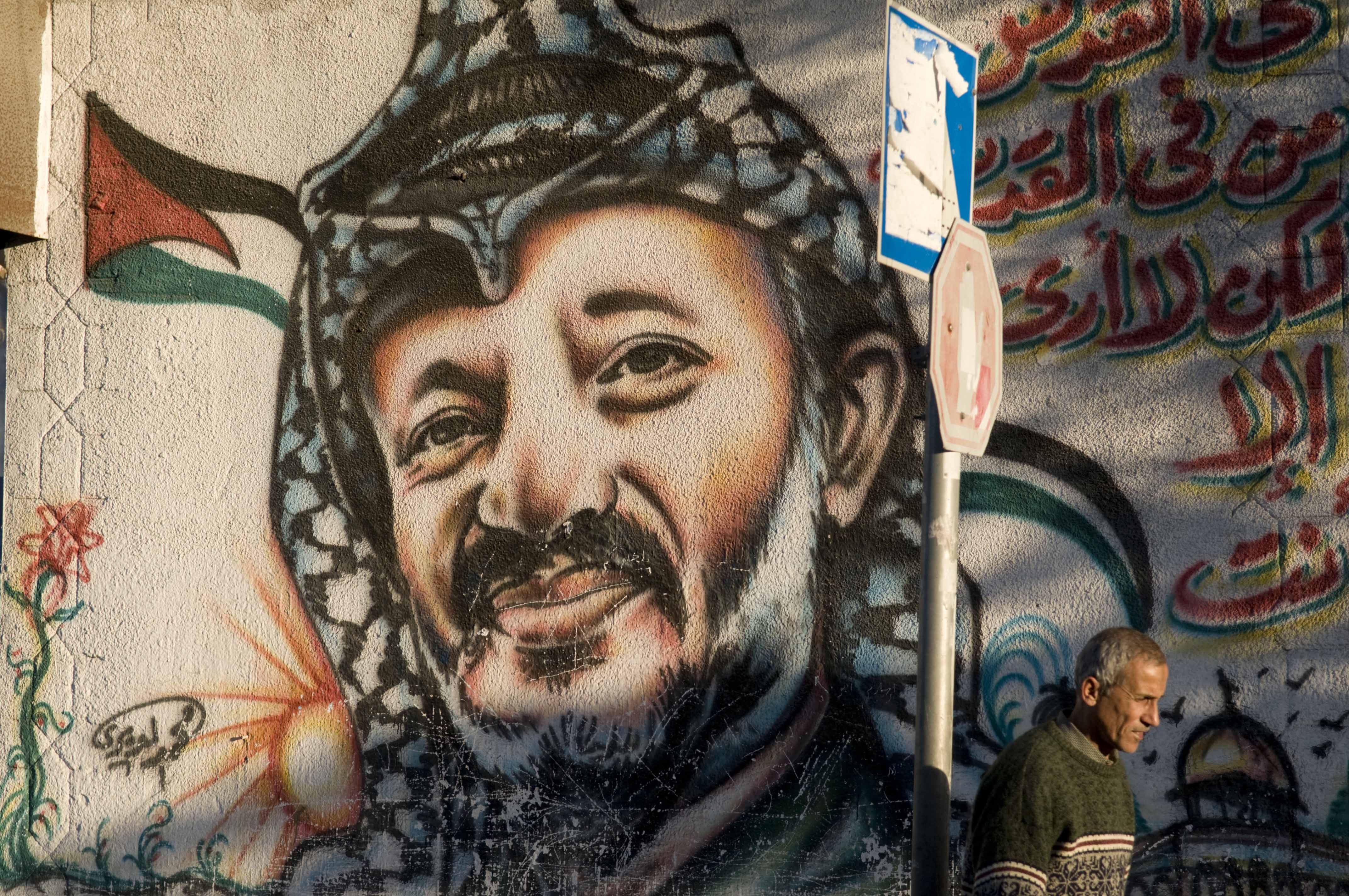Elliott D. Woods, for the Pulitzer Center
Gaza City — Here are some photos of street art in Gaza City. The Fatah slogans are gone, they've been whitewashed and scribbled over with new Hamas slogans, but the face of Abu Amar — Yasser Arafat, grandfather of Fatah — still keeps watch over at least one corner in every neighborhood.
I don't know what all of the slogans mean in all of these photos. For some of them, I just liked the colors. Gaza City is a pretty grey place. Most construction is blocky and non-descript — maybe
because everything is built from cinderblocks. Just a guess. Anyway, the graffiti is a welcome diversion from the architectural monotony, even if the slogans probably don't correspond to my idea of art in the service of humanity.
Women with olive branches. Palestinian flags adorn the sleeves of their long gowns, called abbayas.
Reading stylized script is always difficult, but I think this says "wahed youm," which translates to "one day."
A "shaheed" poster pasted over the remnants of a portrait of Yasser Arafat. "Shaheed" posters, which commemorate the deaths of martyrs, are everywhere in Gaza. The "shaheed," or martyr, pictured here is Jamil Ali Al-Dardsawi, who was a soldier with Al-Quds Brigades, the armed wing of Islamic Jihad in Gaza. Islamic Jihad shares Hamas' ambition of returning all occupied lands to the Palestinian people. Al-Dardsawi died on January 1, 2009.
A portrait of a young Sheikh Ahmed Yassin, the co-founder of the Hamas movement. Later in life, Yassin was known as "The Blind Sheikh" because of almost total blindness. Yassin was paralyzed in a sporting accident at age 12 and spent the rest of his life in a wheelchair. He was assassinated in an Israeli helicopter attack after morning prayers on March 22, 2004. Israeli detractors nicknamed him "The Palestinian Bin Laden."
